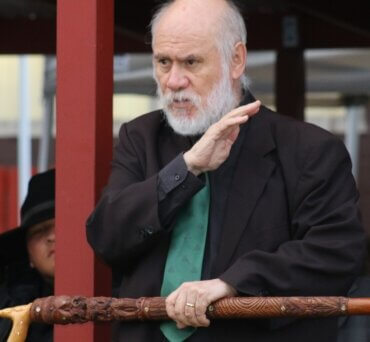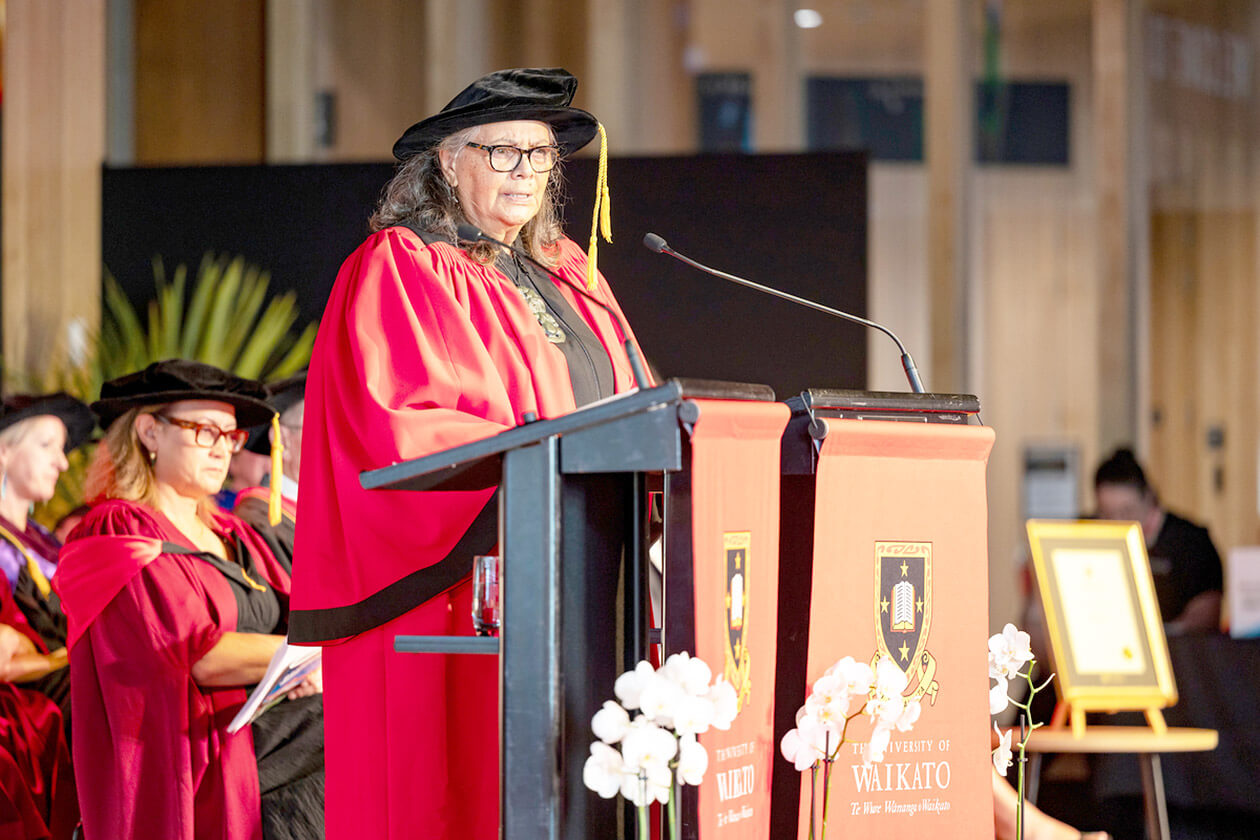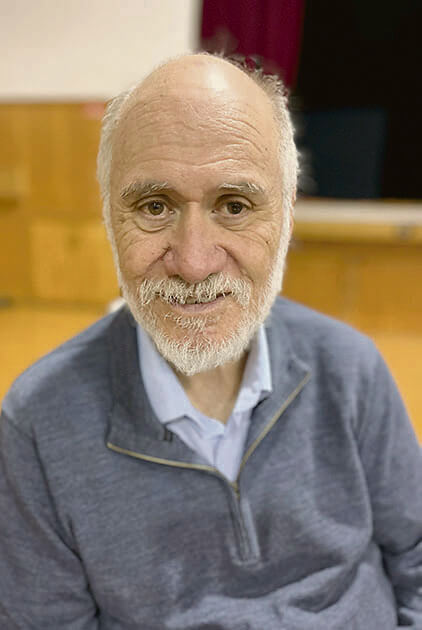
Tom Roa
I very much enjoyed graduation at the University of Waikato on April 8 where Te Haumihiata Mason was conferred with an Honorary Doctorate. This is the most prestigious honour a university can offer to a person.
Part of her conferment ceremony included a little biography relating many of her achievements some of which led to her being honoured with her appointment in the 2023 New Year Honours as an Officer of the New Zealand Order of Merit.
She is credited with a reputation nationally and internationally in the revival of the Māori language as a teacher, a lecturer, and as a translator of literature, like Shakespeare’s Romeo and Juliet, and Anne Frank’s Diary of a Young Girl. Her translation of Shakespeare’s Troilus and Cressida was performed at Shakespeare’s Globe in London in 2013. These translations and her work as the Māori Language expert consultant on the feature film ‘Muru’ about the 2007 police raids on the Urewera and periodic consultancies with the Māori Language Commission evidencing her skill not just as a translator of words but a transmitter, across cultures, of ideas.
In her doctoral address, Dr. Mason quoted Shakespeare in Hamlet’s assertion that ‘There is nothing either good or bad but thinking makes it so.’
I particularly enjoyed Dr. Mason’s allying that sentiment from the 17th century with a perception of AI in this 21st century.
Her Māori translation to me was exquisite. She asserted “He tika kei te hē, ki te tika te whāwhāria, he hē kei te tika, ki te hē te whāwhāria”. My free translation is that ‘In bad, there is good, if the treatment of that is appropriate’. Conversely, ‘In good, there is bad, if the treatment is not appropriate… or just plain wrong.’










